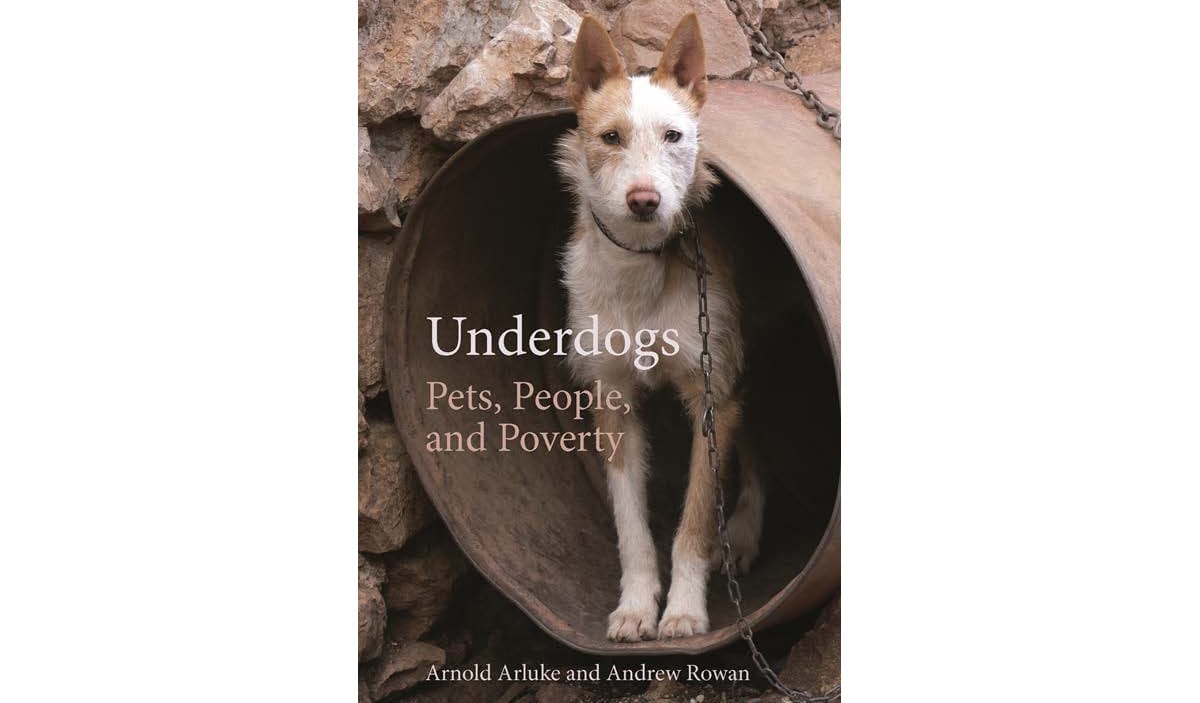
Jan 13, 2021 Underdogs: Pets, People and Poverty by Arnold Arluke, PhD and Andrew Rowan, DPhil
Underdogs: Pets, People and Poverty (2020) by Arnold Arluke and Andrew Rowan, published by University of Georgia Press, Athens, Georgia, 2020.
This book covers the growing movement toward creating affordable veterinary care programs in high-poverty and low-access communities. Its emphasis on the human aspects of such programming is its novel contribution to the field. The focus is on both the providers and the clients in these communities, and how their interactions lead to pet owners accessing or choosing not to participate in no- or low-cost services. The book not only looks at the barriers of cost and access but addresses inherent and systemic biases that impede pet owners in these low-income communities from participating in pet-care programs offered by non-profits and other providers.
These topics are explored through deep explorations of programs offered by two animal shelters – one in San Rafael, Costa Rica and the other in West Charlotte, North Carolina, USA. Beyond their location in different countries, these programs serve populations that vary in demographics, culture, living environments (rural versus urban) and proximity to the shelter. Importantly, the authors conducted their research from a community participatory framework and primarily relied on qualitative methods more accurately to capture the perspectives of the participants – both providers and clients – through their lived experiences.
In my own group’s research with The Humane Society of the United States’ Pets for Life program, we are identifying a variety of barriers to accessing veterinary care that go beyond simple financial limitations. [Editorial note: the West Charlotte community discussed in the book is also the focus of a Pets for Life project.] We are finding that lifting these barriers can have profound impacts on the health of both humans and their companion animals in underserved communities.
Comparing and contrasting the programming in the two study sights offers readers insights into barriers that might be occurring in their own communities. While the focus on two programs serving very distinct populations may limit the generalizability of the findings, the level of detail obtained in each site highlights several common intersections and suggests that some approaches are likely to be widely applicable. Furthermore, the community participation-based approach employed here also provides a framework for identifying unique, community-specific barriers in other areas served by animal welfare organizations.
Overall, I found Underdogs: Pets, People and Poverty to be a compelling read that will stimulate the animal welfare movement’s thinking on how best to address the complex issues that reside at the intersection of people, culture, racial justice and our relationship with companion animals.
About the author:
Kevin Morris, PhD is a Research Associate Professor in the Graduate School of Social Work at the University of Denver and the current holder of the American Humane Endowed Chair. He is also Director of Research at the Institute for Human-Animal Connection. He and his team have been conducting research on human-pet interactions in low-income communities served by the HSUS’ Pets for Life program.


